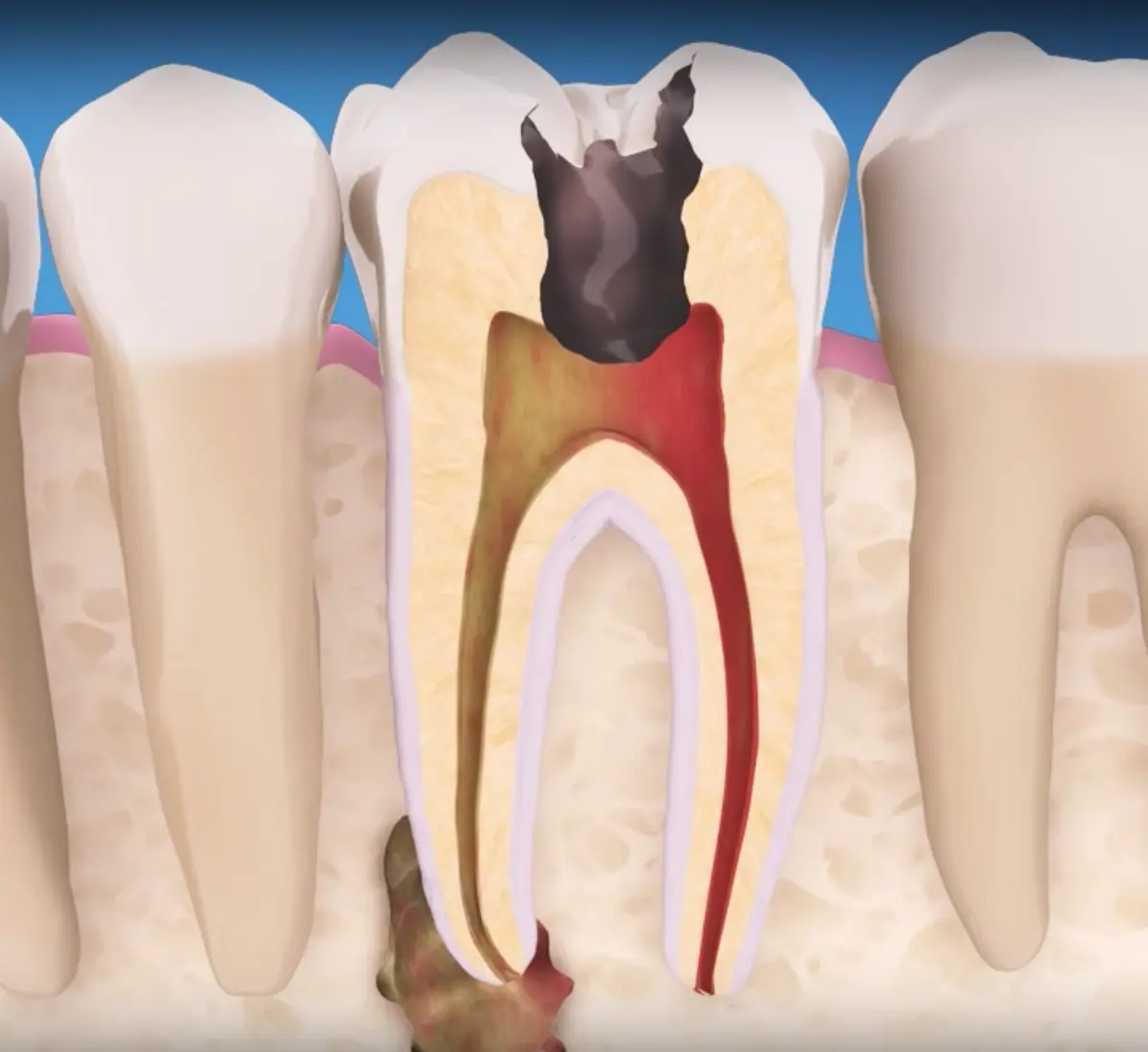A root canal procedure, while effective for saving damaged or infected teeth, is something most people would prefer to avoid. By taking proactive steps in oral hygiene, diet, and preventive care, you can significantly reduce the likelihood of needing root canal treatment in Vijayawada or elsewhere. This guide explains key practices for maintaining dental health and protecting your teeth from potential infections or decay.
Why Do Root Canals Become Necessary?
Root canals are often needed when a tooth’s pulp, containing nerves and blood vessels, becomes infected or damaged. Common causes of pulp damage include:
- Tooth Decay: Deep cavities can spread bacteria to the tooth’s pulp, leading to infection.
- Cracks or Fractures: Tooth fractures, whether from injury or biting hard foods, can expose the pulp.
- Gum Disease: Severe gum infections can spread, impacting the roots of the teeth.
- Repeated Procedures: Excessive dental work on a single tooth can weaken it, increasing the risk of infection.
Good oral hygiene, a tooth-friendly diet, and prompt dental care can greatly reduce these risks and keep your teeth healthy.
1. Commit to a Strong Oral Hygiene Routine
Daily oral hygiene is essential for preventing tooth decay and infections that could eventually require root canal treatment.
- Brush Twice Daily: Use fluoride toothpaste to brush for at least two minutes twice a day, especially before bed. This helps remove plaque and food particles from all surfaces of your teeth.
- Floss Daily: Flossing is crucial for cleaning between teeth, where bacteria often hide.
- Use an Antibacterial Mouthwash: Rinse with mouthwash to reduce bacteria in the mouth, helping to prevent tooth decay and gum disease.
By maintaining consistent oral hygiene, you reduce the potential for cavities and decay that can impact the inner parts of the tooth.
2. Schedule Regular Dental Check-ups
Routine dental visits are key to preventing root canals. Professional cleanings and exams help identify issues early, often allowing for simpler treatments that prevent more serious problems.
- Detect Cavities Early: Your dentist can identify early decay and treat it with fillings before it reaches the tooth’s pulp.
- Receive Thorough Cleanings: Regular cleanings remove plaque and tartar, reducing your risk of gum disease and decay.
- Access Preventive Treatments: Dentists can apply fluoride or sealants, providing extra protection for teeth.
Regular check-ups, generally recommended every six months, ensure that any issues are addressed promptly.
3. Eat a Balanced Diet for Oral Health
Your diet significantly impacts your oral health. Certain foods support strong teeth, while others can lead to decay.
- Limit Sugary and Acidic Foods: Sugars fuel bacteria that cause decay, while acidic foods and drinks weaken enamel. Try to enjoy these in moderation and rinse with water afterward.
- Stay Hydrated: Water washes away food particles and bacteria, helping keep your mouth clean. Staying hydrated also encourages saliva production, which helps neutralize acids.
- Choose Crunchy Fruits and Vegetables: Foods like apples and carrots naturally clean teeth and stimulate saliva flow, promoting a healthier mouth.
Opting for a diet rich in vegetables, fruits, and water will contribute to stronger teeth and reduce the risk of decay.
4. Protect Your Teeth from Physical Damage
Physical trauma, such as cracks or chips, can lead to pulp exposure and increase the likelihood of infection. Protect your teeth by:
- Wearing a Mouthguard: If you play sports or grind your teeth at night, a mouthguard can help prevent cracks or fractures.
- Avoiding Hard Foods: Biting down on hard foods like ice, nuts, or unpopped popcorn can damage teeth.
- Using Teeth Properly: Avoid using your teeth to open packages or bottles, as this can lead to cracks.
Taking care to protect your teeth from damage reduces the chance of exposure to harmful bacteria that can lead to infection.
5. Address Dental Problems Promptly
If you experience tooth pain, sensitivity, or see visible signs of decay, see a dentist promptly. Ignoring symptoms can allow decay to spread, leading to more extensive treatment.
- Treat Cavities Early: Small cavities can be managed with simple fillings. If untreated, decay can reach the pulp, requiring a root canal.
- Watch for Infection Signs: Symptoms like swelling, sensitivity, or pain when biting can signal an infection. Early treatment can prevent worsening conditions.
Getting treatment for dental issues as soon as symptoms arise helps preserve your teeth and avoid the need for root canals.
6. Strengthen Your Teeth with Fluoride
Fluoride helps protect your teeth from decay by strengthening the enamel. To ensure you’re getting enough fluoride:
- Use Fluoride Toothpaste: Brushing with fluoride toothpaste provides a daily boost of protection.
- Drink Fluoridated Water: If your tap water contains fluoride, this is an easy way to support your teeth.
- Consider Professional Fluoride Treatments: Ask your dentist about fluoride treatments, especially if you’re prone to cavities.
Stronger enamel is more resistant to decay, reducing the chance of infection in the tooth’s pulp.
7. Manage Dry Mouth
A dry mouth can increase bacteria buildup, leading to decay. If you experience dry mouth, consider these tips:
- Stay Hydrated: Drinking water throughout the day helps alleviate mild dry mouth.
- Chew Sugar-Free Gum: Chewing stimulates saliva production, which naturally washes away bacteria.
- Avoid Alcohol and Caffeine: Both can cause dry mouth, so try to limit intake.
By keeping your mouth moist, you create an environment that’s less conducive to bacteria and decay.
Conclusion
Preventing the need for a root canal is about maintaining excellent oral hygiene, protecting teeth from physical harm, and getting timely care for dental issues. By adopting these practices, you’ll strengthen your teeth and gums, keeping them resilient against infections and damage. These habits not only reduce your chances of needing root canal treatment in Vijayawada but also contribute to a healthier smile and overall well-being.

[…] make the most of your root canal treatment, consider the following care […]